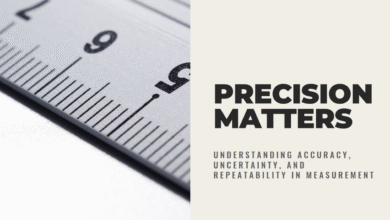How AI And Data Are Transforming The Used Car Market

The used car market has changed dramatically over the last decade. Once driven by instinct and negotiation, it is now powered by AI and data analytics. These technologies are improving trust, removing uncertainty, and making every stage more efficient and accurate. This includes, from the very beginning, pricing to purchasing.
Buyers can now make informed decisions, whereas sellers can predict demand and optimize their listings. AI not only simplifies the process but also transforms it. Through massive data analysis, intelligent systems, and automation, the used car industry is becoming more reliable, transparent, and customer-focused than ever before.
Smarter Pricing with Predictive Analytics
Pricing used cars has always been a tricky thing. Mileage, condition, demand, and even location can significantly affect value. Thanks to predictive analytics and AI, pricing is no longer guesswork. Advanced algorithms can now scan millions of data points in real time to deliver precise valuations. It considers everything from fuel prices and past sales to regional trends.
These tools can even predict price drops or surges according to the market behavior. For sellers, this means faster sales and fairer pricing. For buyers, it ensures they are not overpaying. Predictive analytics modifies pricing from a subjective art into a data-driven science that benefits everyone involved.
AI-Powered Vehicle Inspections and Condition Reports

Traditionally, car inspections depend on human expertise, which could be inconsistent, but AI has changed that. Modern inspection tools utilize machine learning and computer vision to scan vehicles for dents, scratches, and hidden damage with excellent accuracy. Using dealership scanners or smartphone cameras, AI can immediately generate detailed condition reports, minimizing human errors and bias.
These reports usually include safety assessments and repair estimates. Hence, it gives buyers full transparency before purchase. For sellers, AI inspections lower costs, save time, and build trust with buyers. By standardizing evaluations, AI ensures both sides get a more objective and clearer image of the car’s true condition.
Improved Customer Experience Through Personalization
AI is not only transforming how cars are priced, but it is also changing how people shop. Platforms now utilize machine learning to learn individual preferences. It recommends cars on the basis of lifestyle, budget, and search history. If someone usually browses fuel-efficient sedans, the algorithm will learn and tailor future suggestions. This personalization builds trust and saves time, especially for online car shoppers.
AI-powered and chatbot assistants also make the whole buying process smoother. It does so by comparing options, answering questions, and helping arrange financing. Rather than overwhelming buyers with lots of listings, AI creates options that genuinely match their needs. It makes car shopping faster, simpler, and more enjoyable.
Data-Driven Fraud Detection and Safer Transactions
Fraud has long been a risk in the used car market, but AI is making transactions safer. Machine learning systems can now detect suspicious listings and flag inconsistencies in ownership history, documents, or mileage. By comparing repair records, VIN numbers, and registration data, AI tools can identify potential scams before money is exchanged. This technology also cross-checks buyer information and verifies sellers’ identities.
Platforms that use AI-driven fraud detection create stronger trust among users. It makes it easier for honest sellers and buyers to connect. The result is a more transparent and safer marketplace where deception struggles to hide.
Predicting Demand and Managing Inventory
Platforms and dealers once relied on intuition to stock cars, usually ending up with unwanted inventory. Now, data analytics allow precise demand forecasting. AI systems analyze economic indicators, regional sales trends, and even social media chatter to foresee which cars will sell best in certain markets.
For instance, demand for hybrid or electric vehicles might spike after fuel price increases. Dealers can utilize these insights to set competitive prices, adjust inventory, and plan promotions strategically. Predictive analytics also helps reduce costs and optimize storage space. The result is a more responsive used car and smarter inventory management ecosystem.
Improving Maintenance and Ownership Experience

AI does not stop at the point of sale; it enhances the entire ownership journey. Modern used cars usually come equipped with sensors and connected data systems that track performance in real time. AI analyzes this data to predict any potential issues before they become serious. It helps owners avoid expensive repairs.
For instance, predictive maintenance can alert drivers about oil changes, brake wear, or battery issues early. Some platforms even utilize data to recommend the best warranty plans or service centres based on driving habits. This proactive approach not only extends a vehicle’s life but also ensures a safer and smoother ownership experience.
Revolutionizing Online Used Car Platforms
William Fletcher, CEO at Car.co.uk, said, “Online car marketplaces are thriving thanks to big data and AI. There are multiple platforms that can now use intelligent algorithms to streamline every step. This may include everything from listing creation to final sale. AI automatically improves images, generates accurate descriptions, and matches buyers with cars they are most likely to purchase. Data analysis also helps identify which features attract quicker sales or more views.
For consumers, this means more confidence and less stress when buying online. For sellers, it ensures quicker turnaround and greater visibility. In essence, AI has turned online used car shopping into a data-backed and seamless experience.”
Environmental Impact and Sustainability Insights
Data analytics is also helping your used car market become greener. AI monitors vehicle emissions, battery performance, and fuel efficiency to evaluate environmental impact. Buyers can now make informed decisions by comparing how sustainable different models are. Dealers utilize this data to highlight eco-friendly options and promote energy-efficient vehicles.
Moreover, predictive data helps determine when older vehicles should be resold or recycled, extending product lifecycles and reducing waste. As sustainability becomes a growing global concern, AI’s role in promoting cleaner, more responsible, and smarter vehicle ownership is increasingly essential for the future of mobility.
AI in Loan Approval and Financing
AI is also streamlining the financing part of the used car market. Traditionally, applying for a car loan involved manual credit checks and lengthy paperwork. Now, AI-driven systems examine income patterns, risk profiles, and financial history within seconds to offer instant loan decisions.
These algorithms go beyond credit scores that consider real-world factors. These may include employment stability and spending habits. It makes approvals more inclusive and faster. Buyers benefit from personalized financing options, whereas lenders reduce default risks via smarter predictions. With AI managing data-driven insights, you can make car financing more fair, efficient, and accessible for a wider range of customers.
Conclusion
AI and data are not only improving the used car market, but they are redefining it. From inspection and pricing to personalization and fraud prevention, technology is removing uncertainty. It is adding intelligence to every interaction. Buyers now enjoy greater trust, and at the same time, sellers gain tools to maximize profits and optimize performance. The market has changed from guesswork and manual appraisals to a transparent ecosystem powered by automation and insight.



